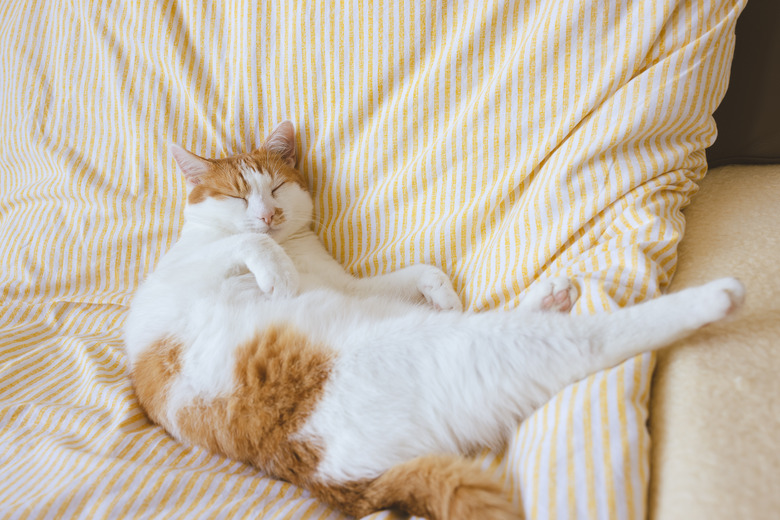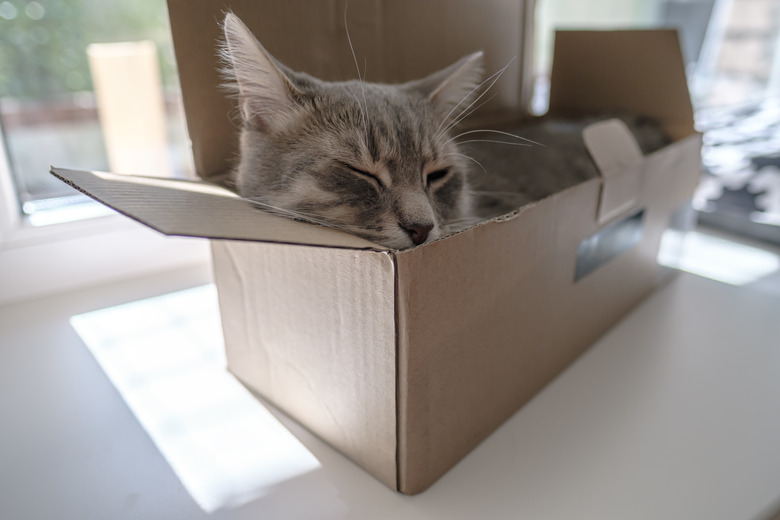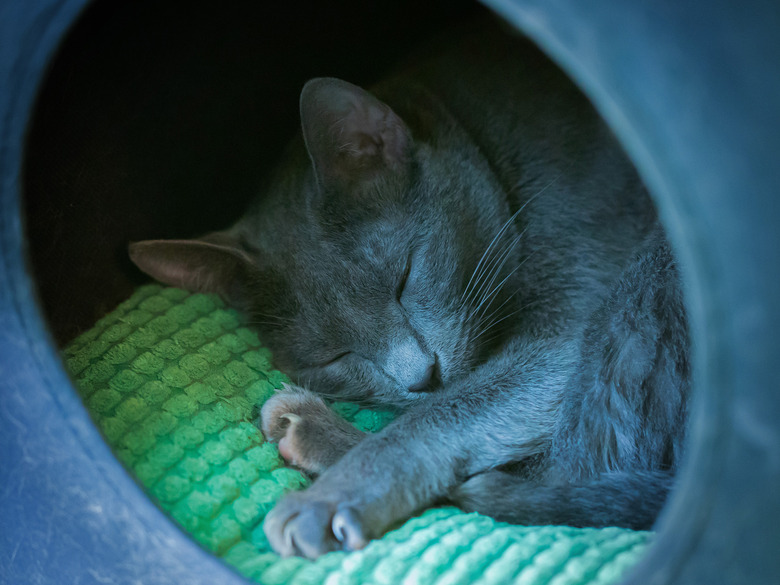Where Do Cats Prefer To Sleep?
In a sunny window sill, under your couch, on top of your freshly washed and dried laundry... cats are known for finding curious spots to curl up and sleep in. Cats can get a bit of rest just about anywhere, but do they have one or two spots they usually prefer to rest? Not every cat will have the same preference, but for the most part, cats are drawn to a few things when seeking out a nesting spot, like warmth, safety, and comfort.
What do cats like?
What do cats like?
While there's no single spot that all cats love to sleep in, as every cat has their own preferences, there are some conditions many cats appreciate during slumber. Generally, cats enjoy being somewhat hidden away or up in the air and out of sight, which is likely a safety tactic inherited from their wild ancestors (or, for outdoor or feral cats, a daily necessity.) Most felines also prefer to sleep on soft surfaces, like their human's bed, their own cat bed, or on top of a blanket on a couch or other furniture. Finally, staying warm is another important factor in finding the right spot to rest, be it for the evening or for a short catnap. Sunny windows, heaters, or near a warm body are hot spots for cat rest.
Where do cats sleep
Where do cats sleep
Due to most cats' preferences to be elevated, hidden, warm, and comfortable, there are some spaces where cats can commonly be found congregating during resting times. Under beds, inside closets, and on top of cat trees or other high spaces are often the first places many people look when they can't find their cat. If your cat shares a home with other cats, they may all have a spot they enjoy cuddling up on together, which is likely your bed or their own cat bed. In fact, 34% of cats studied slept on their owner's beds, while only 20% took to their own beds for some sleep.
Sometimes, you might find your feline sleeping in spots you wouldn't think of as comfortable or sensical. The bathroom or kitchen sink, or sometimes, the bathtub, is a common spot for cats to curl up in, especially during months of the year when the temperature is warm. While this may be irritating during your morning or evening routine, there's usually no cause for concern when you find your cat sleeping here. Sleeping in the litter box, however, may be a sign that your cat isn't feeling well — sometimes, cats with urinary tract or kidney infections will sleep near or even inside their litter boxes. If you notice your cat struggling to relieve himself, consult your veterinarian right away. Cats may also be seen sleeping in small boxes or luggage, which likely replicates a den and provides a sense of safety and comfort.
Sleeping habits of cats
Sleeping habits of cats
A cat's sleep is heavily determined by cat behavior, which is predatory in nature. On average, adult cats sleep anywhere from about 12 to 16 hours every day, and young kittens and some old cats might sleep even longer than that to conserve energy. Like people, cats' sleep schedules follow a circadian rhythm, which runs on a 24-hour cycle. Cats also experience REM, or rapid eye movement, which is the deepest stage of sleep, and one in which dreams can occur. If you notice your cat's eyes darting back and forth while they are closed, your cat has likely found a sleeping spot that she feels safe in.
Unlike people, however, cats are crepuscular sleepers, meaning that instead of sleeping all night and staying awake all day, they awaken around dawn and dusk to hunt, and sleep during the daytime and night. Even domesticated cats who don't rely on hunting mice or small animals to survive still follow this sleep pattern, which is why you may have found yourself being awoken by your feline around 6 a.m., or notice your cat bouncing off the walls around dinner time.


